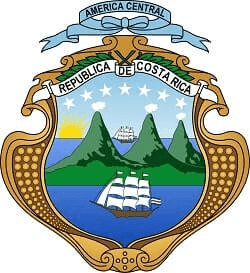Gambling Laws in Costa Rica
In 2010, the Costa Rican government passed a law making it illegal for citizens to gamble in land-based casinos. Furthermore, Costa Ricans are also prohibited from placing wagers at online gaming sites that are licensed in Costa Rica.
Despite these laws, numerous land-based casinos still exist in that country. Hotel-based casinos are a bit part of the tourism industry, and attract many foreign players. Costa Rica has also become a major hub for online gaming because it considers gambling to take place wherever players are and not where servers are located. This means that to obtain a Costa Rican gambling license, operators must block IP addresses that originate from that country.
Aside from blocking Costa Ricans, there are few other requirements for obtaining a gambling license. Accordingly, this country has attracted many rogue operators over the past few years because of its lack of supervision.
Obtaining a Costa Rican Gambling License
There is not an actual Costa Rican Gambling Authority. Instead, those wishing to obtain a Costa Rican license must apply for a data processing license at the San Jose city hall. This requires a physical presence in the country. As such, a number of rogue sites have set up operations in Costa Rica, yet are able to market their services around the world.
An operator must pay certain licensing fees, which can vary based upon the size of the operation. An additional quarterly licensing fee is assessed after that. So long as licensees continue paying these fees, the government provides no additional oversight.
Another thing that attracts rogue casinos is the low tax rate. In Costa Rica, corporations pay zero taxes on income earned outside the country. Since Costa Ricans are automatically banned, this essentially means that gaming sites pay no taxes on any of the money they bring in from overseas.
Earning a data processing license involves only a very short process. Most operators can be up and running in as little as one month, as compared to several months or more for other gambling jurisdictions. The quick turnaround time is another factor that attracts less-than-reputable operators.
Player Complaints
Gamblers who encounter problems with a “licensed” Costa Rican casino have little recourse. There is no official gambling authority that oversees complaints against online gaming sites. Instead, they must deal with the casino directly-something that may or may not prove successful.
The potential for complaints is also very high, as Costa Rica does not require independent testing of any software or any best practices concerning the protection of player funds. Casinos also do not have to disclose RTP percentages, odds tables, or any other information that players would find useful in determining how much to wager.
Relationship to U.S. Players
In 2006, the United States passed the Unlawful Internet Gambling Enforcement Act (UIGEA), which made it illegal for U.S. banks to process online gaming transactions. As a result, many casinos began blocking players with an American IP address. By offering Bitcoin and other cryptocurrencies, Costa Rican gaming sites have managed to lure a number of U.S. players who might not otherwise have access to online gambling.
Proposed Legislation
In 2013, legislation was proposed that would establish an official gambling control board for Costa Rica. Among other things, this law would have:
- Increased licensing fees
- Required online casinos to pay a tax based upon their gross income
- Assessed an additional tax to prevent criminal activity
To date, nothing has come of this proposed legislation. This means that Costa Rican gaming sites continue to operate with no regulatory requirements or player protections in place.
Conclusion
Not all casinos with a Costa Rican license are dishonest. However, the lack of oversight or player advocacy make this country very attractive to rogue operations. Always fully vet any online gaming site by reading reviews and checking to see if they are licensed in any other areas.
When placing bets at a casino licensed only in Costa Rica, proceed with extreme caution. You have basically no recourse if you are taken advantage of, so wager only an amount that you are comfortable losing.










